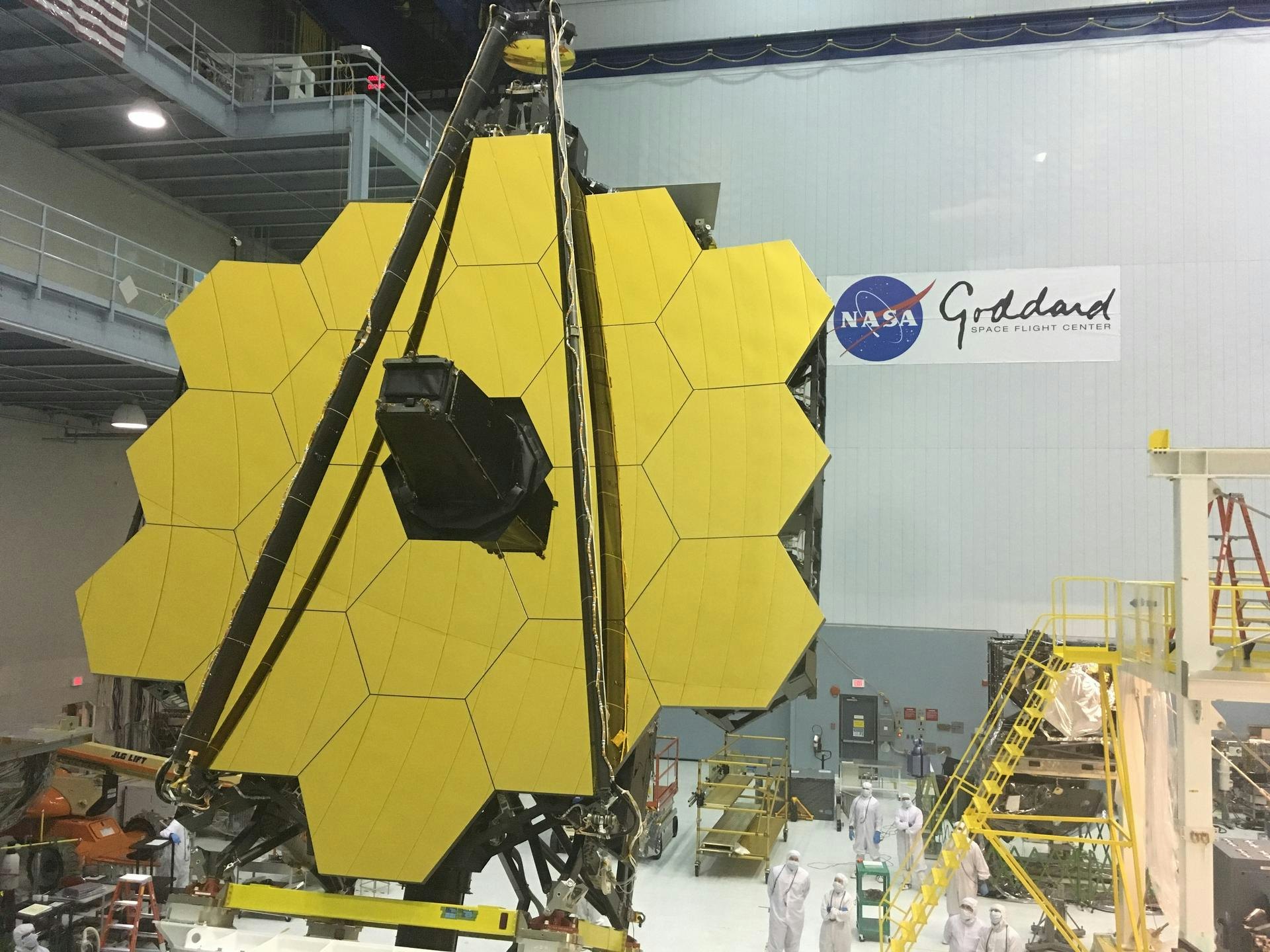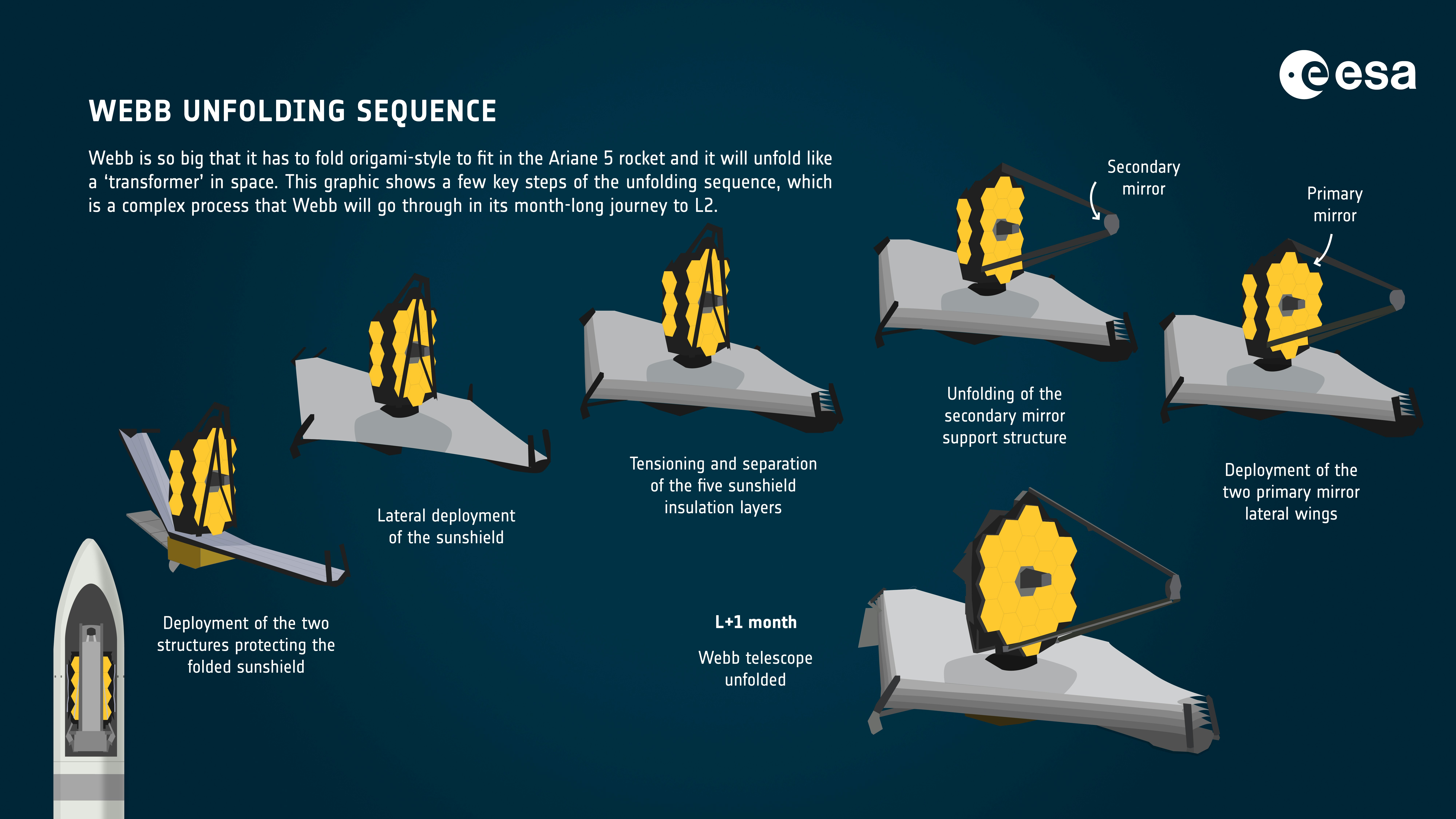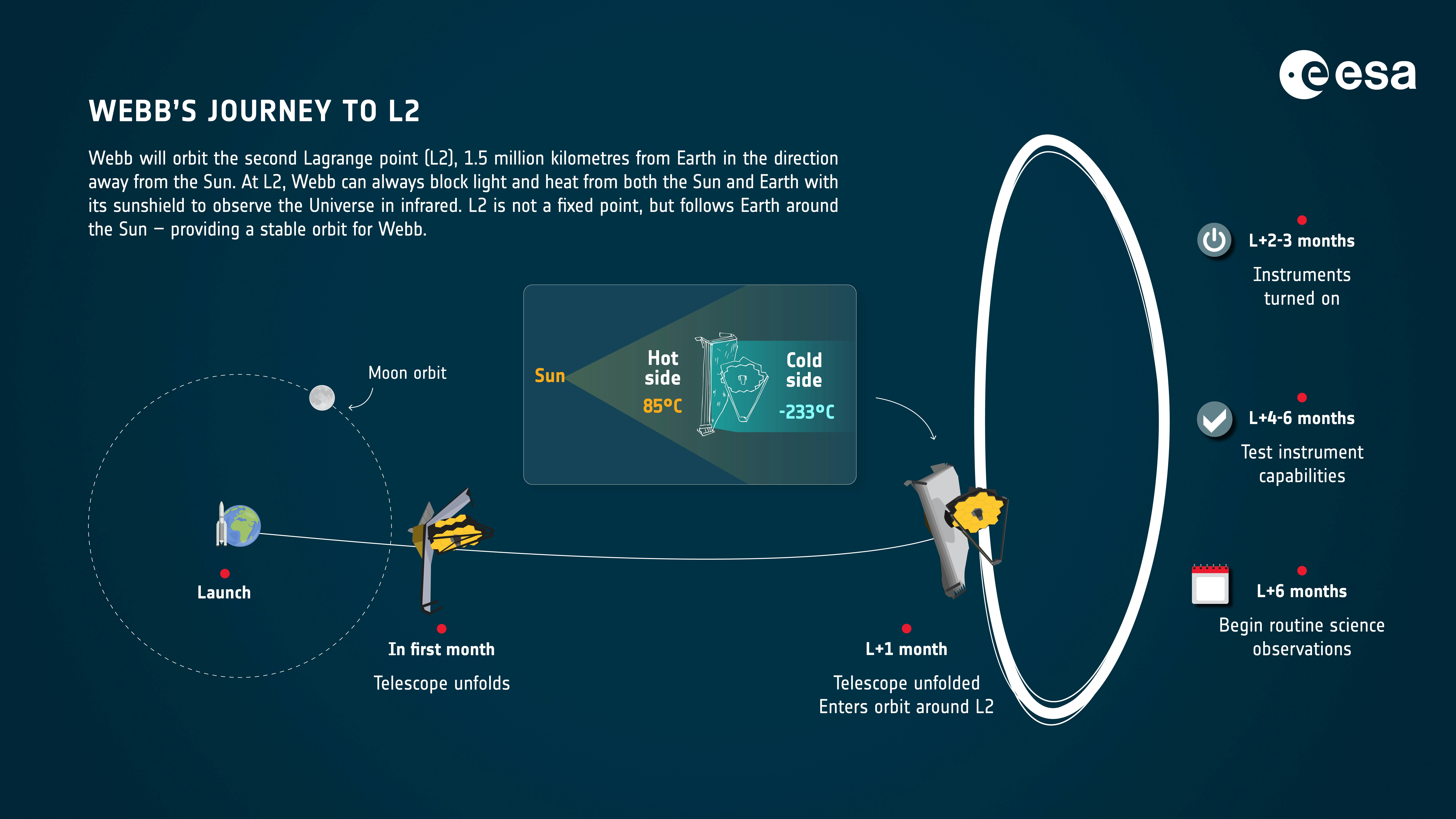
As of Wednesday, the James Webb Space Telescope (JWST) has a fully deployed primary mirror, with each of its 18-mirror segments fully extended and ready for fine focusing later. That leaves one final task for JWST before reaching its destination for operations — an orbital insertion burn expected to take place Monday, January 24.
As of Thursday afternoon, JWST was barely 35,000 miles from its destination, Lagrangian point 2 (L2), around 1 million miles from Earth. A point where the Sun and Earth’s gravity cancel out, orbit L2 allows JWST to maintain a constant position relative to Earth as they both orbit the Sun.
Once in orbit around L2, JWST’s optics and instruments will undergo more months of fine-tuning and testing before the historically powerful space telescope begins peering deep into the distant reaches of time and space.
What’s JWST’s status now?
On Wednesday, NASA administrator Bill Nelson tweeted the announcement that ground operators had completed the process of deploying all 18 hexagonal mirror segments that makeup JWST’s primary mirror.
NASA and ESA had locked each segment in a recessed position for the space telescope’s launch aboard an Ariane 5 rocket on December 25, and ground operators spent the past two weeks carefully extending each segment 12.5 millimeters to allow them free movement — a pace NASA describes as akin to grass growing.
Wasn’t JWST already “fully deployed”?
The nomenclature is a little confusing, but NASA considered JWST “fully deployed” on January 8, when the two wings of the primary mirror, each consisting of three mirror segments, unfolded and locked into place like the leaves on a dining room table.
As the largest space telescope ever launched — with a primary mirror diameter of around 21 feet — JWST had to be folded up tightly for launch. JWST began the lengthy and complicated process of unfolding from that launch configuration shortly after takeoff, deploying solar panels, an antenna, radiators, a massive sunshield, and the primary and secondary mirrors over the past several weeks.

The unfolding of the primary mirror wings was the last of those gross deployment movements. The mirror segment movements JWST completed Wednesday, taking place on the millimeter scale, had more in common with the minute adjustments, calibrations, and testing that await JWST once in orbit around L2.
What’s next for JWST?
The immediate next task for JWST is the orbital insertion burn that will place JWST in orbit around L2.

If all goes well and according to plan, ground operators will fire JWST’s thrusters at 2 p.m. Eastern on Monday, and the space telescope will finally take up its deep space perch shortly thereafter. NASA will host a live broadcast about JWST’s successes so far at 3 p.m. on the space agency’s YouTube channel, NASA Science Live website, and its Facebook and Twitter accounts.
But arrival at L2 marks only the end of one portion of JWST’s journey. With all deployments out of the way, JWST will enter the commissioning phase, beginning with what NASA calls the “wavefront process.”
The wavefront process will see ground operators use the six actuators attached to each of the now free-to-move mirror segments to make nanometer-scale adjustments to ensure the 18 segments focus light as one large primary mirror. This process of aligning the mirror segments so that JWST produces focused images will take about three months.
Following the mirror alignment, JWST’s scientific instruments must be calibrated and tested, which will take many more weeks. NASA expects JWST’s first scientific observations to begin sometime in the summer.







